41 how to make a salt water battery
A cost-effective, water-based battery, however, could be extremely interesting for stationary electricity storage applications. Ruben-Simon Kühnel and David Reber, researchers in Empa’s Materials for Energy Conversion department, have now discovered a way to solve the problem: The salt containing electrolyte has to be liquid, but at the same ... Making a large, cheap homemade battery is easy.
The Facts about Saltwater Batteries. Sodium chloride is the electrolyte used in a salt water battery. Batteries making use of toxic or flammable materials are more difficult to recycle; they are non flammable. Due to their proven technology and continuously decreasing costs, lithium-ion batteries are the market's main energy storage choice.

How to make a salt water battery
Graphene Batteries Help Make Batteries Cleaner. Graphene Batteries can reduce the environmental impact of battery use. Graphene battery technology has a similar structure to traditional batteries in that they have two electrodes and an electrolyte solution to facilitate ion transfer. Voltmeter. Directions. Step 1: Make Salt Water. Pour 2 cups of water into your jar or bowl. Pour 1 tbsp. of salt into the water and mix until dissolved. Step 2: Set Up Your Leads. Connect one alligator clip to one metal object and connect a second clip to a second metal object. Dip the objects into the salt water. The zinc-air battery that you will create has a zinc anode, a copper cathode, and saltwater as an electrolyte. Commercial zinc-air batteries use zinc powder as the anode, a porous carbon cathode, and potassium hydroxide (KOH) as the electrolyte, but the basic chemical reactions are the same.
How to make a salt water battery. Make the arrangement for the rest of the circuit as shown in the figure. The LED should light when all the wires are connected. Working Principal: There is a chemical reaction between the copper plate and the salt water and between the zinc plate and the salt water. These chemical reactions cause electrons to move. History. In 2008 Carnegie Mellon professor Jay Whitacre founded Aquion Energy and received venture funding from Kleiner Perkins Caufield and Byers.He won the 2015 Lemelson-MIT Prize, an award worth $500,000, for inventing the company's salt water battery.They are the first and only battery manufacturer to have met all the stringent criteria to obtain Cradle-to-Cradle (Bronze) certification. A battery prototype has been designed using salt water and materials that are non-toxic and charge quickly, paving the way for new types of battery. The design principles behind the new prototype, which changes colour as it charges, could also be applied to existing battery technologies to create new devices for energy storage , biological ... This new battery from Aquion Energy runs on saltwater and can power your home for nearly 10 years (3000 days/nights). The best thing about it is it’s very environmentally-friendly. Not only are the new Aquion batteries safer for the environment, they are also non-flammable, non-hazardous, and non-explosive.
Home Made Salt water battery last longer if used thick aluminum foil or soda can.You subscribe here and I subscribe to you is a teamwork approach. The perfect Epsom salt-to-water ratio for battery is 2.5 tablespoons of salt per liter ...13 Aug 2021 · Uploaded by My Engineering Projects Saltwater batteries store less energy compared to lithium-ion batteries in the same amount of space. Due to the lower energy density, there is a demand for larger sized batteries. The larger the batteries are, the more the materials for making them are required. 3. Higher Cost. Dec 24, 2016 - Make a Battery From Salt and Water Not a lot of people know this, but you can actually power devices from little more than salt, water, steel and copper. Learning how to harness your own energy can…
The saltwater-based Aquion AHI system moderates the maximum temperature that the battery can reach. The electrolyte makes it is impossible for any internal reactions to drive the battery above 212°F. At this temperature, all of the water will evaporate leading to an open circuit condition. In the new study, researchers from MIT, University of Southern Denmark and University of Copenhagen, have found a new way to make the sodium-ion battery more energy efficient. Last year a sodium ... All you need to do is poke a hole in the copper sheet, wrap an exposed part of the insulated wire through it, and make sure that the connection is secure. Repeat the same process with a wire connecting to the piece of sheet metal. Then, you place both wires and metals into the water on opposite sides. Whenever it runs out of power you just have to drain the water and refill it. If more power is needed, you can add a little bit of Clorox Bleach. It also works with other electrolytes, like lemon juice, vinegar, saltwater, or baking soda. This is my first instructable so i am welcome to any criticism or suggestions.
Jan 11, 2022 · This Aquasana Water Filter and Salt-Free Water Softener is a reliable way to control the presence of hard water in your house. This Aquasana filtration system can filter around 1,000,000 gallons of water. In simple words, you will not need to replace the filter for about ten years.
Charging Operation of the battery is relatively simple. In the course of charging, the electrical energy reaches the battery chemistry via a current collector, thus the sodium ions migrate to the anode and settle in the anode grid. Discharging While discharging, the process is reverse.
Making a Saltwater-powered Battery 1 Gather your materials. For this battery, you'll need one plastic cup (6 to 8 ounces), two 3/4-inch-wide strips of metal that are taller than the cup, and one tablespoon (14.79 ml) of salt. Each strip must be a different type of metal, but you can choose which type: zinc, aluminum, and copper are popular choices.
Inexpensive and stable—The salt water battery. Research on the water electrolyte: Empa researcher Ruben-Simon Kühnel connecting a test cell to the charger with the concentrated saline solution ...
How can I make a salt water battery at home? A DIY saltwater battery is made like the coin type described above. In this case, however, you’ll need the following items. Syringe piston Strips of sandpaper or normal paper 12 zinc or iron screws Water Salt A screwdriver A multimeter LED lights Copper wire, and Insulating material such as plastic
How to make salt-water battery June 19, 2016 Things you need: 5-6 mini cups (paper tea cups). (You can also use 2-3 medium-sized coffee mugs) Concentrated salt water (obviously!) Insulated copper wire (about a meter long) Aluminum foil Mini-LED (low voltage, about 2 V) Scissors/Clippers (for cutting) Alligator clips (optional) Matchbox (optional)
Making of Salt Water Battery Take copper wire pieces, leaving one centimeter from either end, remove the remaining outer plastic coating with the help of pliers/box knife or scissors, this will make an electrode.
Free energy light bulb using salt at home setting in a frame .new free energy for light bulb .it 100% work (proof).one glass of water give 0.7volt .we can us...
Salt water battery + Joule thief circuit. Materials : Copper plate, Aluminum Foil, Kitchen Towel, Warm Salt water, Joule thief circuit Bigger copper plate & Aluminum Foil is more powerful. This battery lamp turned on one hour.. but if you replace salt water, it will be lasting until the foil almost erode.
Preparing the Salt Bridge Download Article 1 Dissolve the potassium nitrate in water to form a solution. 2 Cut out a strip of filter paper. 3 Soak the filter paper with the solution. 4 Place the two beakers next to each other. Bend the filter paper so that it touches the bottom of both beakers. Part 3
Make sure that all the nails are dipped in the water if not, then add some more water.Now add some salt in it to make the water conducting.Salt water is a good conductor of electricity. Leave the Piston in it for 2 to 3 minutes until the paper between the nails and the copper soaks the salt water.
zinc and copper salt water battery
Jul 06, 2021 · Saltworks delivers innovative solutions that make clean water, concentrate brine, and achieve zero liquid discharge (ZLD). ... 99.9% Purity of Battery-Grade Lithium ...
new free energy for light bulb .it 100% work (proof).one glass of water give 0.7volt .we can use unlimited glass of water and increase voltage.in this video...
In saltwater batteries, a liquid solution of salt water is used to capture, store, and eventually discharge energy. Whereas a traditional lithium-ion battery uses the element lithium as its primary ingredient for conducting electricity, a saltwater battery uses sodium , the same element found in table salt.
The zinc-air battery that you will create has a zinc anode, a copper cathode, and saltwater as an electrolyte. Commercial zinc-air batteries use zinc powder as the anode, a porous carbon cathode, and potassium hydroxide (KOH) as the electrolyte, but the basic chemical reactions are the same.
Voltmeter. Directions. Step 1: Make Salt Water. Pour 2 cups of water into your jar or bowl. Pour 1 tbsp. of salt into the water and mix until dissolved. Step 2: Set Up Your Leads. Connect one alligator clip to one metal object and connect a second clip to a second metal object. Dip the objects into the salt water.
Graphene Batteries Help Make Batteries Cleaner. Graphene Batteries can reduce the environmental impact of battery use. Graphene battery technology has a similar structure to traditional batteries in that they have two electrodes and an electrolyte solution to facilitate ion transfer.










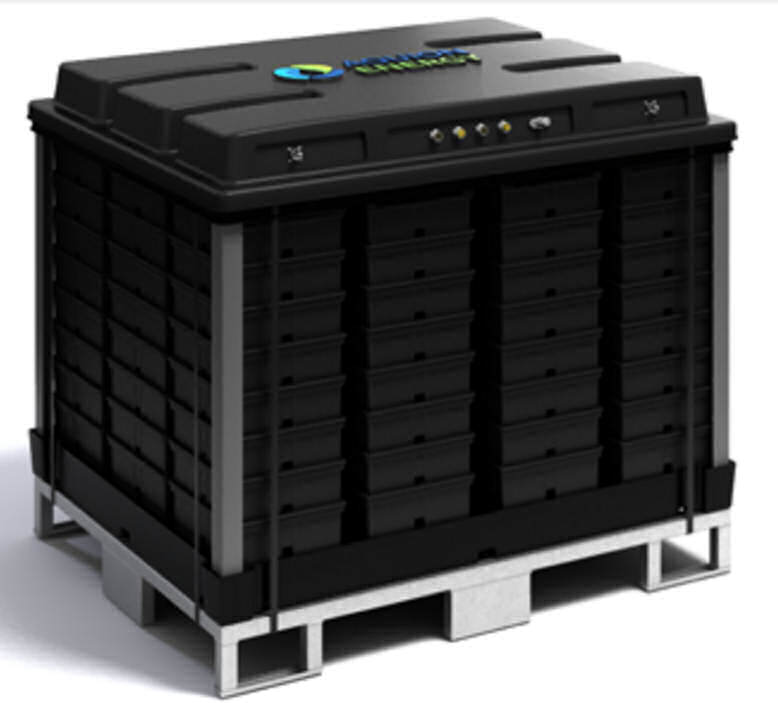






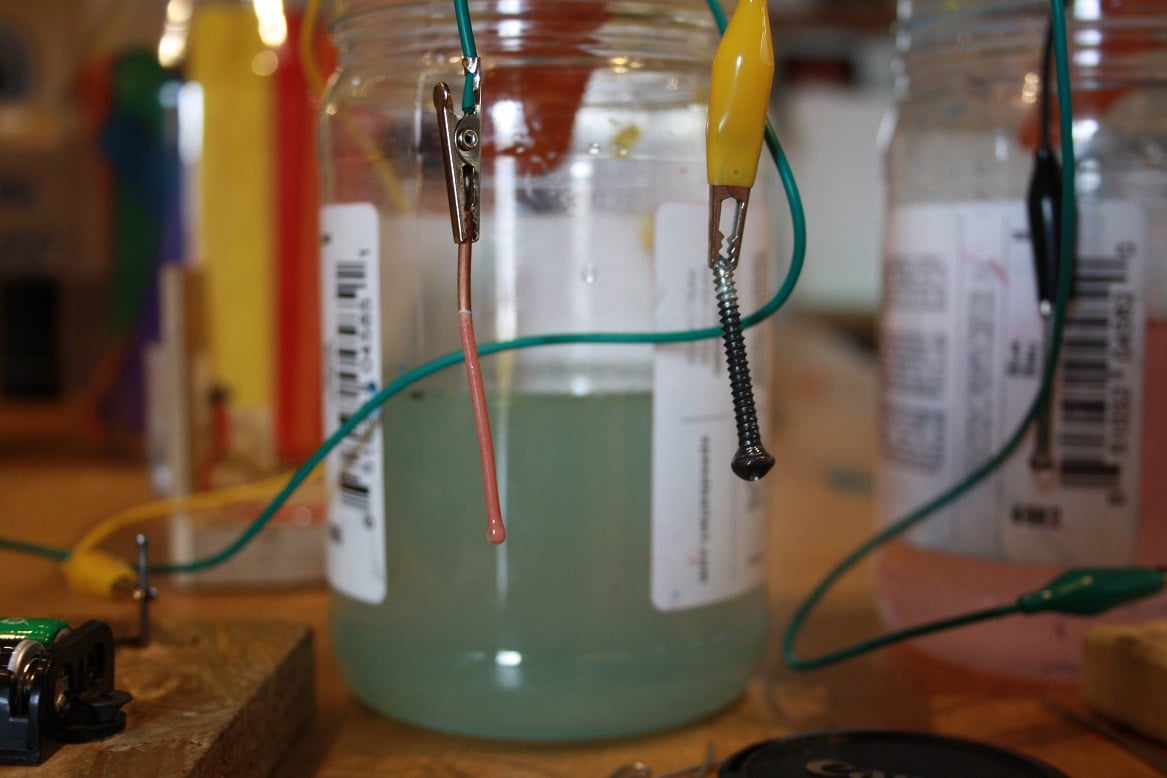

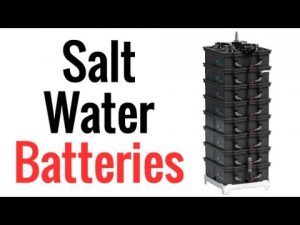
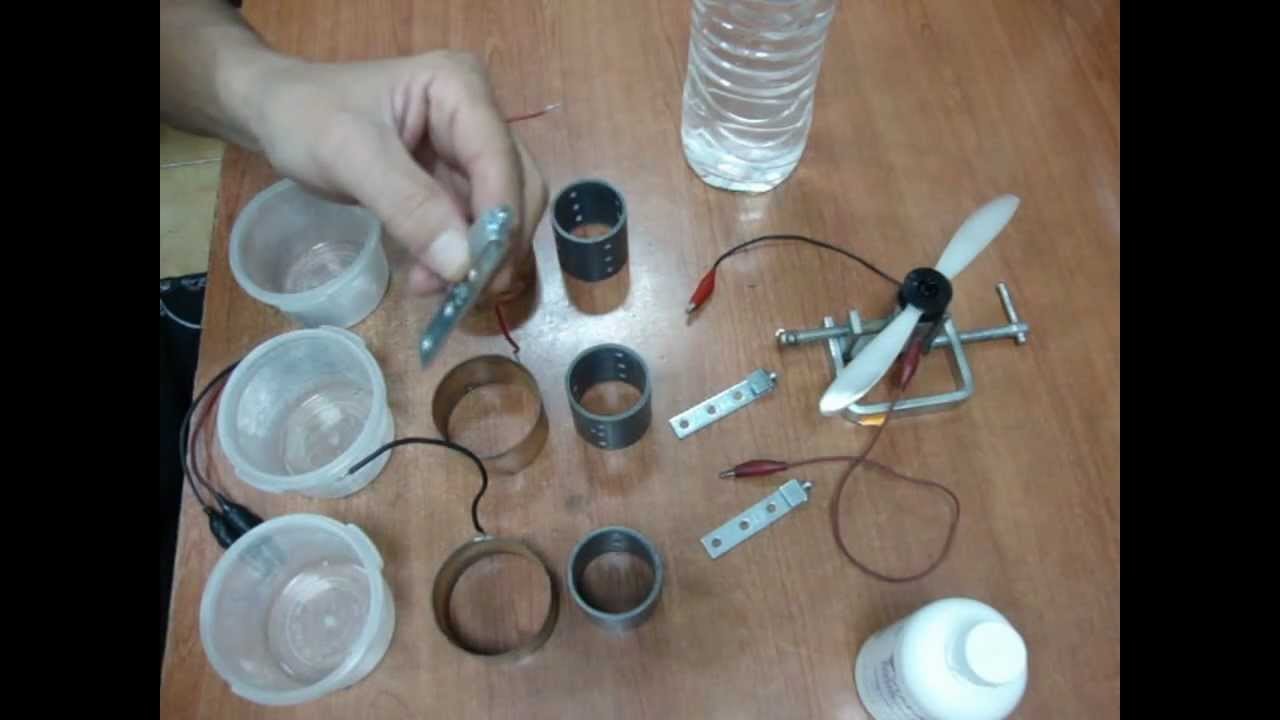



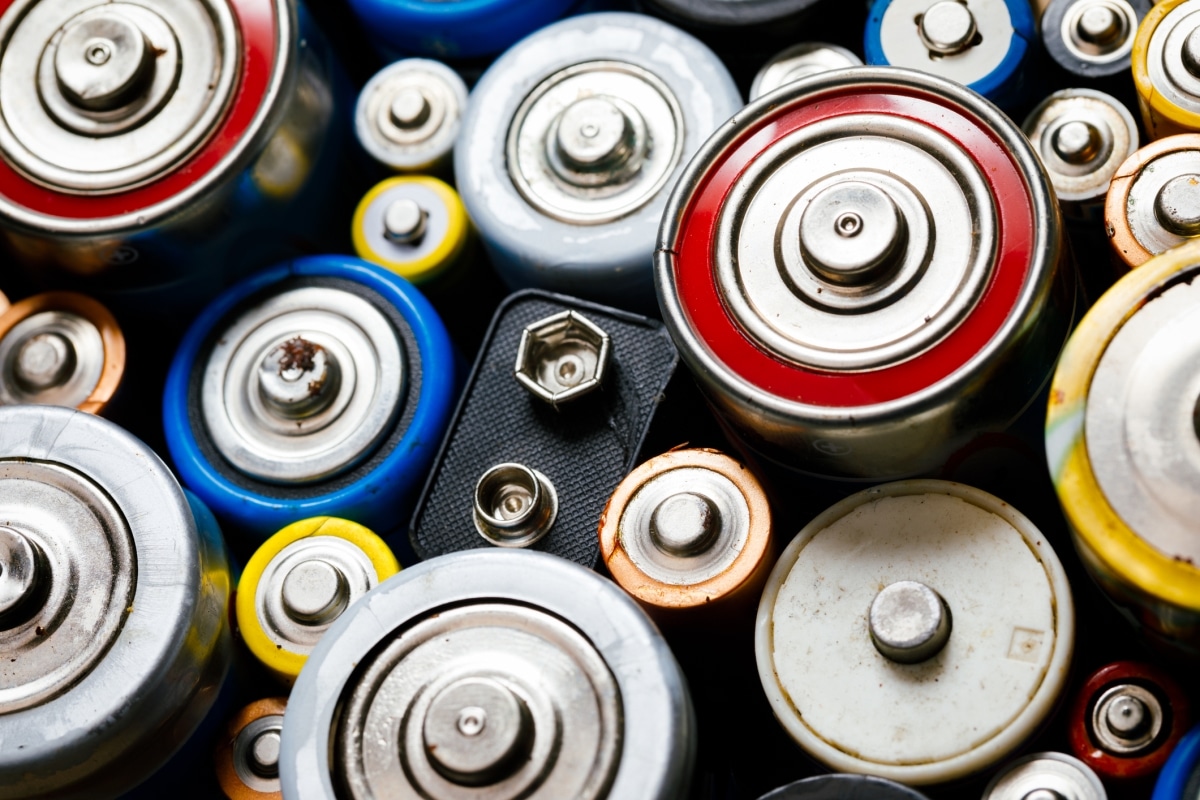









0 Response to "41 how to make a salt water battery"
Post a Comment